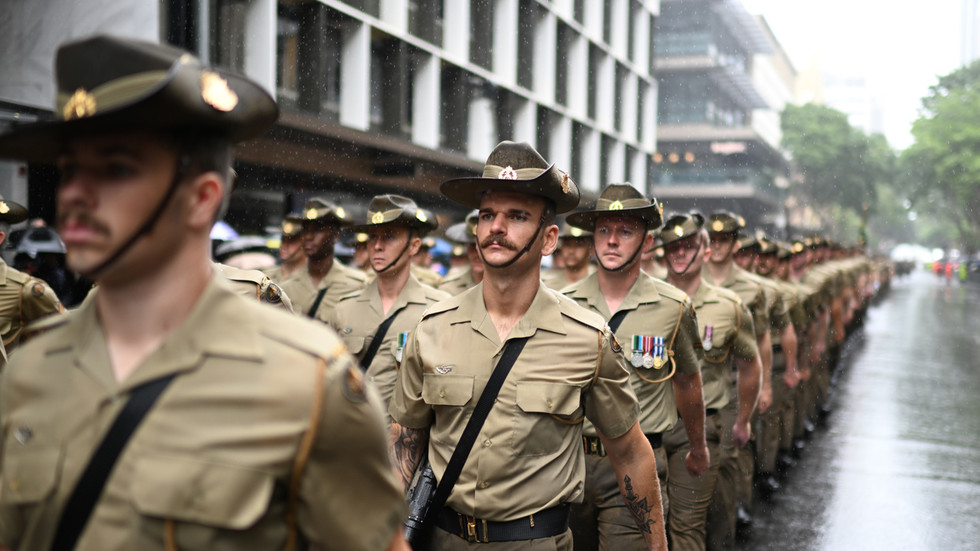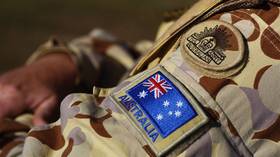
Canberra is set to adapt its military assets amid ongoing US-China tension

Members of the Australian Defence Forces (ADF) march during an Anzac Day parade on April 25, 2022 in Brisbane, Australia © Getty Images / Dan Peled/Getty Images
A comprehensive assessment of Australia’s defense forces has found that the country’s military must undergo drastic changes if it is to have the capacity to address fluctuating strategic demands in the Indo-Pacific. The report comes amid concern in Canberra over the potential impact of posturing by Beijing and Washington in the region.
The center-left Labor government-ordered Defense Strategic Review, released on Monday, declared Australia’s armed forces to be not “fit for purpose,” and called for increased spending on assets, including long-range missiles and military drones.
“This is a watershed moment for defense policy in our country’s history,” said Minister of Defence Richard Marles in a Monday news conference discussing the report. He added that changes recommended in the review will ensure that Australia will become a “more confident and self-reliant nation.”
The assessment, which involved input and analysis from a former foreign minister and former defense chief, warned that Canberra must adapt to a “radically different” strategic environment brought upon by a Chinese military build-up it said was “the largest and most ambitious” by any global power since World War II. It also said that the Indo-Pacific region remains in a state of strategic flux given that for the first time in decades the United States is not “the unipolar leader of the Indo-Pacific.”

Read more
It added that tensions between the US and China are “the defining feature of our region and our time” and that Beijing’s military expansion is “occurring without transparency” as to its “strategic intent.”
An official from the Chinese embassy in Australia attended a briefing on the report, The Guardian wrote on Monday.
Responding to the report the same day in Beijing, China’s foreign ministry spokesperson Mao Ning, said countries should not “hype up the so-called China threat narrative.” Mao also said Beijing remains “committed to maintaining peace and stability in the Asia-Pacific and the whole world” and that it does “not pose any challenge to any country.”
In March, Beijing expressed its anger at elements of the AUKUS military alliance between the US, UK and Australia. It said that Washington’s move to provide Canberra with three nuclear-powered Virginia class submarines amounted to the allies “walking further and further down the path of error and danger.” China’s mission to the UN subsequently accused the members of the trilateral alliance of provoking an arms race.




